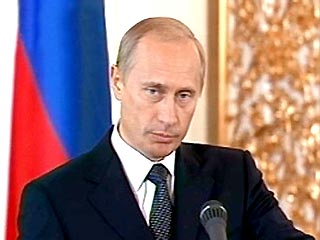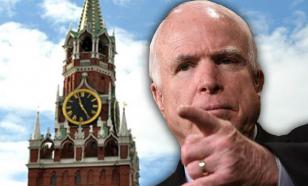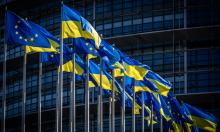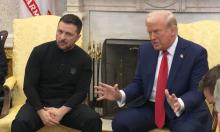Biased, Biased West
 Why Western journalists provide biased accounts of Russian events?
Why Western journalists provide biased accounts of Russian events?
“Journalist has to do the following: ask questions, provide an objective account of various events and search for truth. However, how well do we follow these guidelines when talking about Russia? To what extent do clichйs, personal biases and self-interests influence the perception of the world's largest country, our neighbor?” asks journalist of a German daily newspaper Rheinischer Merkur Gabriele Krone-Schultz.
“Back in 1970s for instance, directors of radio programs purposely inserted “gurgling sounds” in order to imitate a drinking Russian, while the rest of characters in the show drank normally. During the day of Russian presidential elections a German news anchor said ‘good-bye’ to his audience in the following way: “There is no doubt that Putin will win the elections. So, na zdorovje!” Nobody would ever come close to saying anything like this about German elections. Obviously, these are just small things; but they accurately portray the way Russians are being treated,” writes the German journalist.
Why do we mention patriotism each time the subject of the US comes up, whereas each time we talk of Russia the subject of nationalism rises?
Up until today, the standard repertoire of commentators on Russia mainly consists of accusations and moral fury. Such practice has only been interrupted once during the Gorbachev era of euphoria. With all this going on, the actual details of the event along with its analysis are often omitted.
Obviously, Putin placed television under control. However, he did not abolish freedom of speech. On the other hand, what freedom of speech are we talking about anyway?! Freedom of speech has reached its peak during the last years of Gorbachev's reign… When Yeltsin came to power, freedom of speech has turned into a real mud fight without any rules or regulations. Let me mention that when a government channel broadcasts only good news about the government and a private channel paints only dark pictures of state's authority simply because it is told to do so and because it gets paid for doing it, both of these scenarios are unacceptable when we deal with freedom of speech.
It is true that Putin is in control when it comes to forming public opinion in the country. At the same, it is also true that he was the one to veto all amendments to the law of press, which practically silenced all mass media sources…
Obviously, Putin does not guarantee total safety and economic growth. How can he? He provides a chance, nonetheless. The biggest danger is not the return of communism, Moscow’s imperial ideas, or “controlled democracy”, but such banal things as corruption and collapse of basic morals.
The subject of Chechnya appears to be the main stumbling point in Russian-German relationships, despite Schroeder's words that the situation has changed after September 11th. To seek truth, one must be able to distinguish the first and the second Chechen war. When Yeltsin started the war ten years ago, almost all Russian servicemen and majority of Russian people were against it. In general, Russians could understand Chechnya’s desire to gain independence. And we’ve labeled Yeltsin as a democrat here in the West. This gave him more freedom to do anything.
By the end of the second Chechen war in January 1997, Aslan Maskhadov became the country’s president. He appeared to be a rather moderate politician; he did not strive towards creating a religious nation. Unfortunately, Maskhadov was unable to put his plans to reality. A number of complaints against the remaining Russian-speaking population kept rising. Kidnappings, ransoms, murders—all of these issues soon became reality.
New Chechen authorities did not even intervene. At the same time, new laws of the Shiriat were introduced. They involved beatings with sticks, amputation of lower limbs and execution. Soon, Russian sympathies turned into animosity. Maskhadov did not live up to the initial expectations; the more cautiously he acted, the more he was tricked by the so-called field commanders.
Those field commanders imagined they were Islamic Che Guevaras and invaded Dagestan under the slogan of liberation. The population in turn did not wish to be liberated by Islamists. The Afghan example was still quite fresh. Basically, the world had to be sympathetic with Russians and design a unified strategy to fight religious fanatics more effectively.
In our coverage we often deliberately omit the fact that those bloody Chechen invasions on Dagestan triggered the beginning of the second war in Chechnya. Truth is, Russian army has had a real liberation campaign for the first time since World War II. These words were said not just by anybody, but Sergey Kovalev himself, a human rights activist who is not involved in any intrigues with authorities.
All of the above information in no way attempts to justify the war. It is simply an attempt to correct the existing fault, caused by constant urge of the West to portray Russians as power-loving beasts with a strong desire to commit genocide.
Today's situation in Chechnya is tragic. Unfortunately, nobody knows how to solve it. Here is the catch: this is not a conflict between “right” and “wrong” but a conflict between “right” and “right”. This is the essence of the tragedy.
Subscribe to Pravda.Ru Telegram channel, Facebook, RSS!





